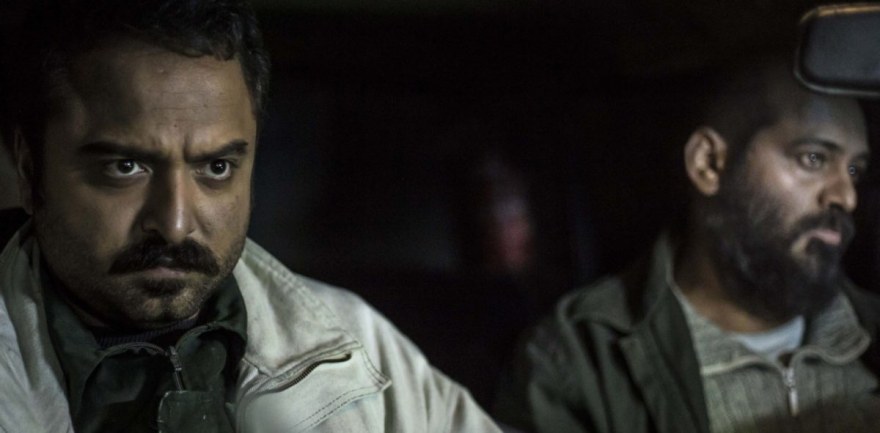Tea time with Shab e Tavalod
An interview with Omid Shams, director of Shab e Tavalod
How did you get the inspiration for Shab e Tavalod?
Imagination is the source of all ideas. Imagining, we will be able to see things that are not real, we will be able to see things the way we like. Imagination is a very important part of our mind that can come from our real life, our dreams, the books that we’ve read and the films we’ve watch. In Shab e tavalod I had developed a part of my real life with my imagination. One night, I was in my friend’s car, driving through the road, that we had witnessed a man beating a woman. I went to help the woman and my friend stayed in the car. I realized they were not fighting. After that, I thought what if they were really acting a fight scene and all of this was a scene to mug the cars that pass away? And what would my friend do? Would he run away with the car or would he come to help? This scene stock in my mind for a while and with the help of imagination, I wrote Shab e tavalod.
How difficult is it to earn your living in Iran?
Really hard. The problem is that unfortunately in Iran people are not familiar with the “short film” concept, and the reason is that there is no place for them to be shown to public. So, there is no budget return for the short filmmakers, therefore, supplying the budget is really hard. Comparing to the feature cinema, In the last few years the short cinema has improved in terms of genre variety and quality, so if the authorities in charge would provide it with the proper substrate, people will definitely welcome the short film industry and the short filmmakers can have the budget returned and make their future short film much easier.
How did you work on the two characters’s personalities?
It is so important for the scriptwriters to have the knowledge of the character’s social status and to be able to put himself in their place and imagine what they would do and what they would say. For me to get to know the characters better, I tried to imagine their background and I wrote a biography for each of them; and I even imagined how they met and in different meetings, I had analyzed the characters with the actors for them to know their characters “ali and ahmad” better.
How much were you interested in hypocrisy and individualism?
People are complicated and I always think of this complication. I believe people are not what they show they are, but they are what they don’t show. I think individualism is the main reason of people having problems with each other, so it will always be an important issue for me.
How did you work on unspoken and implied in dialogues?
When the dialogues suit the character, the audience will believe it, and if the character would want to state any concept, it won’t be a slogan to the audience. First, I think about what information with what content should be delivered in each scene, and then I try to write the dialogues according to each character’s personality. In Shab e tavalod because the actors were chosen according the character, they themselves would make great suggestions that I used. In the process of scriptwriting, I unconsciously came to some scenes that did not needed any dialogues, and the drama should advance in absolute silence. I think these scenes were fascinating to the audience.
Are you interested in the question of trust and will you make further films on this theme?
People are complicated and I always think of this complication. I believe people are not what they show they are, but they are what they don’t show. Yes, my new short film “lunar eclipse” is recently been shot in this theme.
What sort of freedom would you say the short format allows?
In short filmmaking, you can learn courage. A main feature of short filmmaking is experiencing and I always tried to have courage in my short films, and to experience new ways in form and concept. Another important issue is that in Iran we are facing censorship in feature cinema, but in short cinema we can act somehow freer.
If you’ve already been to Clermont-Ferrand, could you share with us an anecdote or story from the festival? If not, what are your expectations for this year?
Well, because the Clermont-ferrand festival is the biggest film festival dedicated to short films, I like it to be an environment for the filmmakers to get to connect to each other and to the producers, which I’ve heard it is like this. And I had also heard that the short films will be screened with a great quality in great theaters full of audience, which it is so exciting for me. And at last I like to get the prize!
Shab e Tavalod is being shown in International Competition I5.








